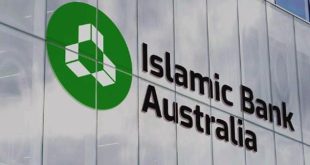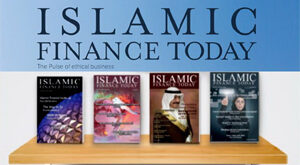 “…I trust that you will agree that Islamic Finance, at least for jurisdictions like
“…I trust that you will agree that Islamic Finance, at least for jurisdictions like
Perhaps it is apt to commence this article with the above quote from the Deputy Chief Executive of the HKMA which emphasizes so much on winds of change in the context of the global expansion of the Islamic financial services. Penetration of Islamic financial services in non Islamic jurisdiction countries warrant changes and adaptation of Regulations inter alia.
Lead time for adaptation
Whilst the spectacular rate of growth of Islamic finance worldwide has drawn the attention of
many, the industry is in its infancy when it comes to dealing with issues such as accounting, tax and regulatory, ratings, transparency and corporate governance. Many countries and institutions such as the Accounting and Auditing Organization for Islamic Financial Institutions (AAOIFI) and Islamic Financial Services Board (IFSB) are grappling with issues that stem from this dynamic industry based on innovation. One may observe that though these issues may be addressed in an efficient and convenient manner in Islamic countries, the process of arriving at solutions in non-Islamic countries is much slower.
The lead time at times is frustrating. The cause for this is many fold. The lack of awareness of principles of Islamic financing and the detailed mechanics of Shari’a compliant instruments among
the Policy Makers and Regulators is at the heart of the predicament. The speed at which professionals such as lawyers, accountants, bankers, and tax consultants learn the ropes of Islamic financial instruments contributes to the woes of finding solutions expeditiously. Hence the importance of ‘demystification’ of Islamic financial instruments among the regulators and the professionals. In the UK, the policy makers and regulators who were ahead of the other non-Islamic countries in the West, have been successful in attracting the benefits of Islamic financial services to their economy and promoting the UK as the financial hub of the west.
This has left a beaten path for others to walk on and a model to be followed by the policy makers and regulators in other countries. Perhaps a vindication of the above is the process of extending tax and stamp duty relief which commenced in UK as early as 2002 being mirrored in France at present.
Role of the Regulators
The responsibility of the Regulators in the context of the growth of Islamic financial instruments in their respective territories is somewhat common in non-Islamic jurisdictions. The responsibility of ensuring that the instruments comply with Shari’a rules cannot and would not fall within their domain. Nevertheless, in their role as the protector of the consumers and supervisor of financial institutions, they have to shoulder the burden of addressing corporate governance issues. At a high level observation it may be stated that whilst it is important to regulate, supervise and place the requisite checks and balances, over regulation itself could be a hurdle for the flourishing of the industry. Hence, the task of these regulators is a tight rope walk. A high standard of skill and judgment is expected from the Regulators themselves. Their role is not merely restricted to prudential supervision, but extends to a more developmental role as well.
Regulation of the industry
Regulation of the Islamic financial services could pose various challenges and options for the Regulators. One option would be to create a distinct regulatory regime for Islamic financial institutions and services parallel to the conventional system, whilst the other would be the policing of Islamic institutions and instruments within the existing conventional regulatory framework. In countries like Iran and Sudan this consists exclusively of regulatory frameworks governing Islamic institutions as institutions offering interest based instruments are not in operation in those jurisdictions. Certain Gulf States, Malaysia and Bahrain have opted for regimes to regulate Islamic financial institutions separately from the conventional counterparts. The UK’s approach to Islamic financial services has been that of, “no obstacles and no special favours”. The UK Financial Services Authority (“FSA”) regulates Islamic Financial institutions within the existing system. The Islamic Bank of Britain established in 2004 and the European Islamic Investment Bank operate here while other Islamic financial institutions are regulated in the same manner by the FSA.
The Chairman of the FSA of UK, Callum MacCarthy addressing the Muslim Council of Britain Islamic Finance and Trade Conference on 13 June 2006, elaborated on the UK’s approach for regulation of Islamic Financial institutions as follows – “… it becomes all the more important that we create a regulatory framework for it which is fair and reasonable. By this, I mean a framework which recognizes the special features of Islamic Finance and finds appropriate regulatory responses to them rather than simply applying solutions which have been devised for traditional, Western non-Islamic banks or insurance companies. But I also mean a framework which offers those who use Islamic finance, whether from wholly Shari’a compliant Islamic banks or by way of Shari’s compliant products offered by non-Islamic banks, the same degree of protection which is offered to those who use non-Islamic finance.
This means, for example, that in considering authorizing Islamic banks in the UK we have applied the same principles – the five Threshold Conditions – that we apply to non-Islamic banks seeking authorization; adequate financial resources (both capital and liquidity), sound management and
reliable systems and controls are among the most important of those principles. In the retail market – dealing with Home Purchase Plans, for example – we will want to ensure that the promotion of these products should meet the same standards– nether more, nor less – of being fair, clear and not misleading which we require in the promotion of non-Islamic mortgages, or indeed, of any financial service…”
Some opine that it is desirable for a different set of regulations to be applicable for Islamic institutions as the nature of risk undertaken by these institutions differ from risks undertaken by conventional banks. Islamic institutions engage in profit and loss sharing business ventures or sale and purchase transactions as opposed to pure lending undertaken by conventional banks. Thus, one may opine that these institutions have an incentive to undertake more risks than conventional counterparts and this should be reflected in the capital adequacy ratio. On the other hand, it has also been pointed out that a lesser risk should be attributed to assets subject to Musharaka as it is a profit or loss sharing partnership. The fundamental principle involving Mudaraba is that the investor bears the loss in case of failure of the venture leading to a reduction of the risk exposure of the financial institution.
The promoters of Islamic Finance point out that the convergence of Islamic ethics and values into the sphere of financial services is a step in the right direction to purify the commercial transactions.
The role of a Shari’ah Board of a particular institution would play a key role in this regard. The global financial crisis has also drawn attention to the risk associated with Islamic institutions and the instruments. The proponents of the system point out that the system is exposed to a lower level of risk due to financial transactions being backed by physical assets as opposed to mere transactions on paper. The case of the detractors is that due to the high involvement of the real estate sector in Islamic Financial transactions, these institutions would be more sensitive and exposed to the changes in the mortgage market.
Islamic Financial Instruments
Mudaraba arrangements or profit sharing partnerships used in substitution of conventional deposits is a prominent area requiring the attention of Regulators worldwide. First and foremost, banking statutes may require amendments to permit banks to engage in this profit sharing partnership arrangement.
Generally entering into partnerships or joint ventures and owning real estate are acts that are ultra vires for commercial banks. In most of the countries the type of activities a Banking institution could engage in is defined statutorily. The amendment introduced to the Banking Act of No. 38 of 1988 in Sri Lanka to facilitate licensed commercial and specialized Banks is a typical case in point. Mudaraba being a partnership in form also causes a quandary to tax consultants & tax officers. How practical is it to insist that Mudaraba taking institutions should file ‘partnership tax returns’ under the provisions of tax statutes ?. Malaysia has addressed the issue by introducing the requisite amendments to their tax statute, freeing mudaraba arrangements from complying with conventional partnership tax returns.
Prohibition on banks to deal in or own real estate is yet another hurdle that Islamic financial instrument such as Diminishing Musharaka, Ijara or Murabaha are exposed to, if they are used for home financing. The use of Murabaha for trade financing was made a permissible product for banks in Sri Lanka, by virtue of an amendment to the Banking Act. In the USA, the Office of the Comptroller of the Currency had demonstrated a flexible approach regarding a Bank (United Bank of Kuwait) offering Murabaha based financing products and lease to own home finance products in late 1990s by issuance of the permission by way of interpretative letters.
Dispute resolution
Whilst establishing a cohesive regulatory and tax regime that facilitates Shari’ah compliant financing, it still remains a challenge in non Islamic jurisdictions. Yet another hurdle is the litigation involving Shari’ah compliant instruments. Courts of law in non Islamic jurisdictions invariably may rule in favour of conventional laws if there ever is to be a contest between Shari’ah rules and conventional laws. Judges may refuse to accept that two systems of laws could govern Islamic instruments.
Perhaps a more fundamental issue that could be witnessed in a court room would be the skill and the expertise to comprehend Islamic financing principles by judges who have been exclusively trained in conventional laws. It is probable that this would remain a dilemma during the coming decade in all the non Islamic jurisdictions that have witnessed the penetration of financial service industry with Shari’ah compliant instruments.
Ironing out the tax issues
The Chancellor of UK who once proclaimed his intention to make Britain “the gateway for Islamic Finance and trade” has ensured pursuant to a series of amendments introduced to tax and stamp duty laws, a level playing field for Islamic financial instruments to compete with the conventional counterparts. Apart from Malaysia, which could be described as the Islamic financial hub of the East, the progress in the other countries by the tax authorities in this direction is at a very slow pace.
The tax developments are evident in Singapore under the guidance of Monetary Authority of Singapore (“MAS”). Stamp Duty and Goods and Services Tax which pose a bar and increase the cost of Islamic financial transactions have been mitigated to a greater extent due to the intervention of MAS. Indonesia's Parliament by passing a requisite enactment has scraped double taxation on Islamic financial transactions. There are indications that China which may become
a potential player in the Islamic financial industry is also conscious of the need to change its tax laws to facilitate the growth of the industry. The Government of Indonesia has also taken cognizance of tax issues involved in Islamic financial instruments. The Hong Kong Government has carried out a review of tax issues facing the industry. Unlike other non-Islamic countries, tax issues in Hong Kong may not be that complicated due its simple tax system devoid of capital gains.
Government’s role in developing the
Industry
A government of a particular jurisdiction could facilitate the development of the industry, not merely by creating a level playing field but by provision of positive tax incentives too. This approach is evident in Malaysia where various tax incentives have been afforded to issuers, investors and intermediaries. These include income tax exemptions for profits on trading of Sukuks denominated in foreign currencies and exemptions for fees from arranging and underwriting of foreign currency Sukuks. A Government’s involvement in boosting the industry could take the form of issuance of sovereign Sukuks as manifested by the initiatives of Indonesia and Singapore. Though no Sovereign Sukuk has been issued in UK to date, there is much anticipation that it may occur in the near future. Many other governments in the Middle East and Malaysia have led the way in developing the Sukuk markets in their respective countries by issuing sovereign Sukuks.
Conclusion
A study of the progress of the status of Islamic financial services reveal that much is expected from the policy makers and Regulators in many countries. Whilst accepting that Islamic finance is a hot issue, the fact that navigators in most of the countries are still grappling with fundamental issues remains a statement that is not far away from the truth. The navigators need a compass. The lead time taken for promulgation of requisite legislation may be abridged due to efforts of lobby groups in many jurisdictions. Vehicles to aggregate the efforts and derive change augur well for the Islamic finance industry as much as in any other industry.
Courtesy: Islamic Finance Today magazine
 Sri lanka Muslims Web Portal Diversity and Inclusiveness
Sri lanka Muslims Web Portal Diversity and Inclusiveness



